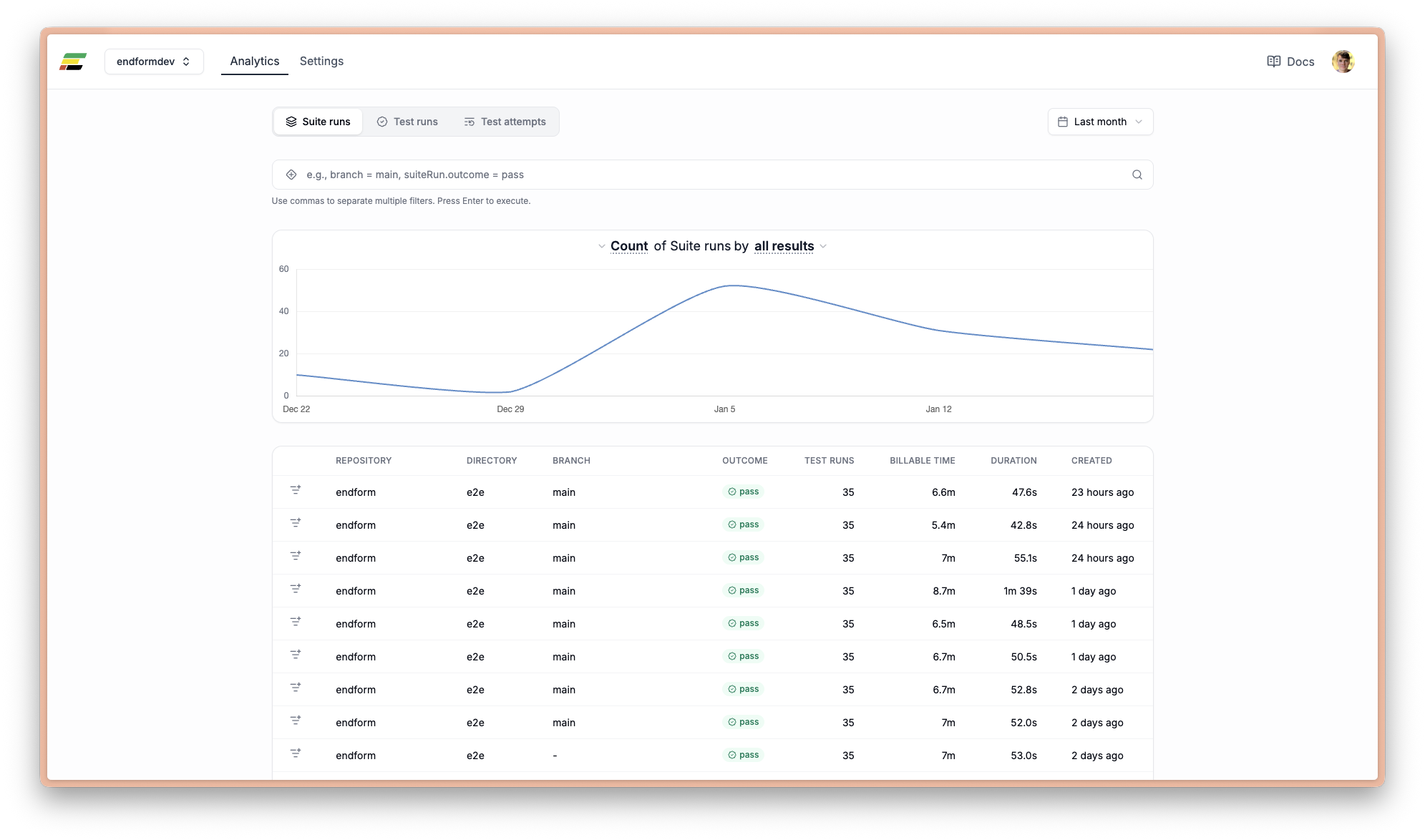We’ve rewritten how we track test identities. This should make analytics more predictable and stable over time.
Major features & improvements
- Test identity rewrite: Tests are now identified using stable properties (
fileName,projectName,testName,describes) that match Playwright’s identification method. This makes test tracking more reliable across code changes. - Database improvements: Upgraded to Postgres 18 improved the performance of most of our expensive queries.
CLI version updates
Version 0.50.x
- Storage state configuration support: Added support for more Playwright config storage state variants.
- Miscellaneous stability fixes: Better error handling, more retries with backoffs on network requests and more.
